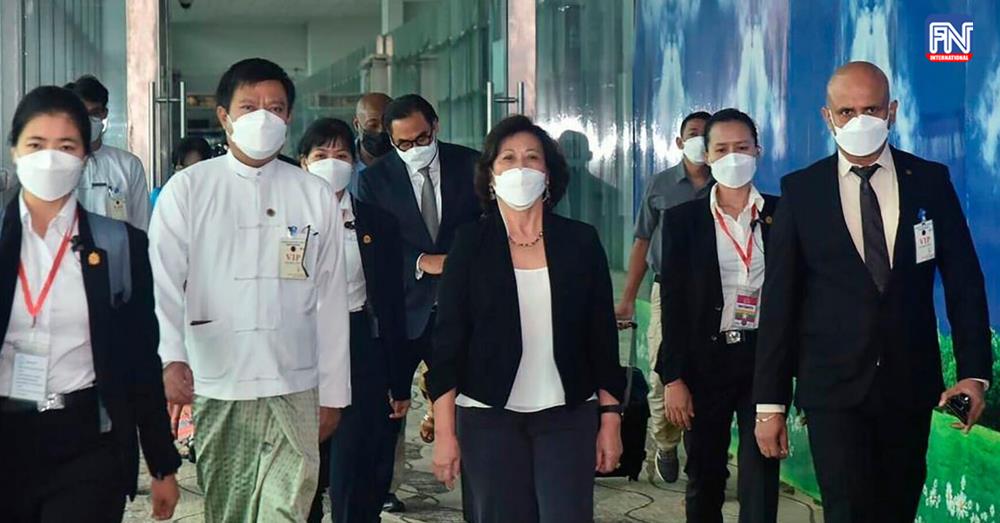SINGAPORE, Sep 5 (AFP) - The United Nations' Myanmar special envoy on Monday (Sep 5) vowed not to visit the country again unless she is allowed to meet ousted leader Aung San Suu Kyi, after a heavily criticised trip to meet the military junta.
Diplomatic efforts to resolve Myanmar's bloody impasse led by the UN and the Association of Southeast Asian Nations (ASEAN) regional bloc have made little headway, with the generals refusing to engage with opponents.
United Nations Special Envoy Noeleen Heyzer met with senior junta leaders in the capital last month during her first visit, 10 months after her appointment.
The trip drew criticism from both the junta and the military's opponents.
She was denied access to detained democracy figurehead Suu Kyi, who has been sentenced to a total of two decades in prison.
The UN envoy later irked junta officials who accused her of issuing a "one-sided statement" of what had been discussed. Heyzer had called for an immediate end to violence and the release of all political prisoners, her office said at the time.
More than 2,200 people have been killed and more than 15,000 arrested in the military's crackdown on dissent since it seized power in February 2021, according to a local rights group.
Days after Heyzer's visit dozens of Myanmar civil society groups dismissed her trip as the "latest evidence of the historical ineffectualness" of UN envoys, and criticised her meeting with junta chief Min Aung Hlaing.
They also called for her mandate to be terminated and for UN Secretary General Antonio Guterres to intervene personally in the crisis.
"If I ever visit Myanmar again, it will only be if I can meet with Daw Aung San Suu Kyi," she told a seminar at the Singapore-based think-tank, the ISEAS-Yusof Ishak Institute, using a Burmese honorific for Suu Kyi.
Heyzer added there was "no clear path" out of Myanmar's crisis and warned of a "multidimensional catastrophe" if the international community failed to broker efforts towards peace in the country.
In July the junta stoked renewed international condemnation when it executed Phyo Zeya Thaw, a former lawmaker from Suu Kyi's National League for Democracy party, for offences under anti-terrorism laws.
In response, the UN Security Council - including junta allies Russia and China - issued a rare condemnation of the junta.
Guterres appointed Heyzer, a Singaporean sociologist, last year. She replaced Swiss diplomat Christine Schraner Burgener, who military leaders blocked from visiting the country where she had also hoped to meet with Suu Kyi.
Cambodian foreign minister and ASEAN envoy for Myanmar Prak Sokhonn has visited Myanmar twice but both times the military has denied him visits with Suu Kyi.
